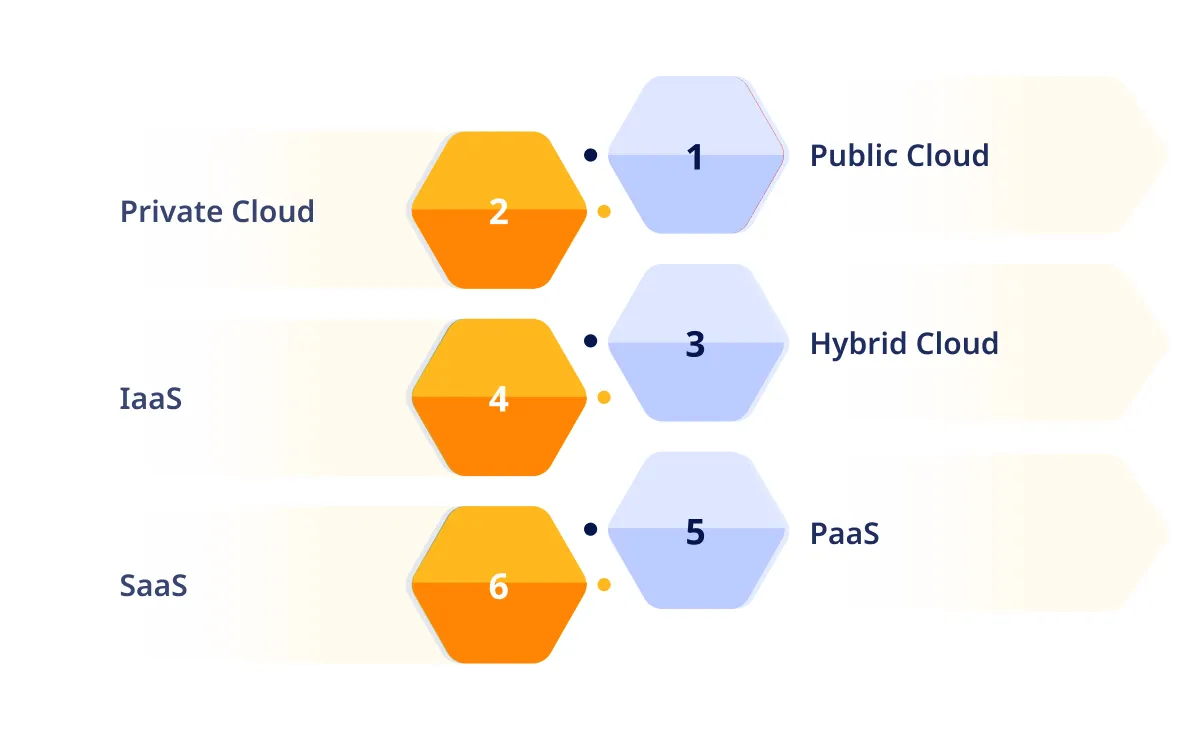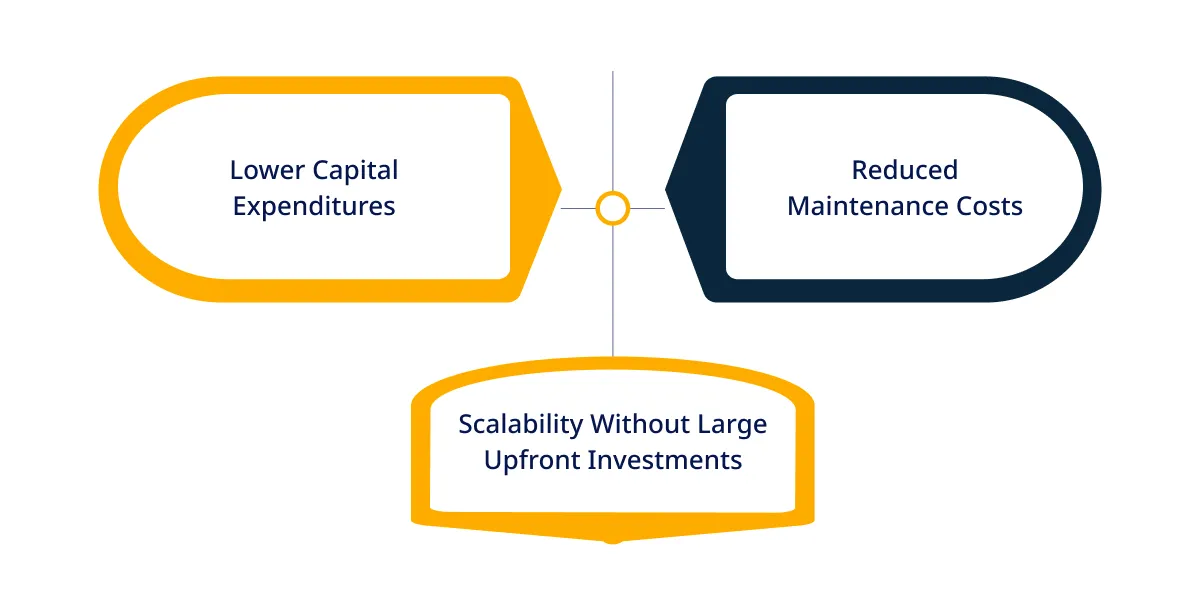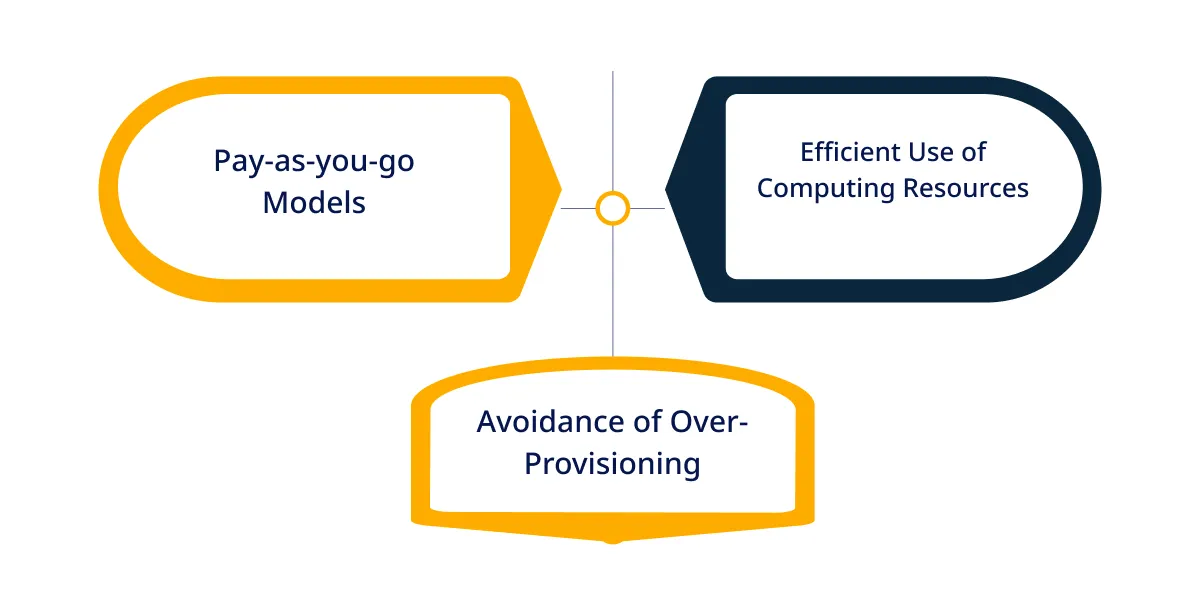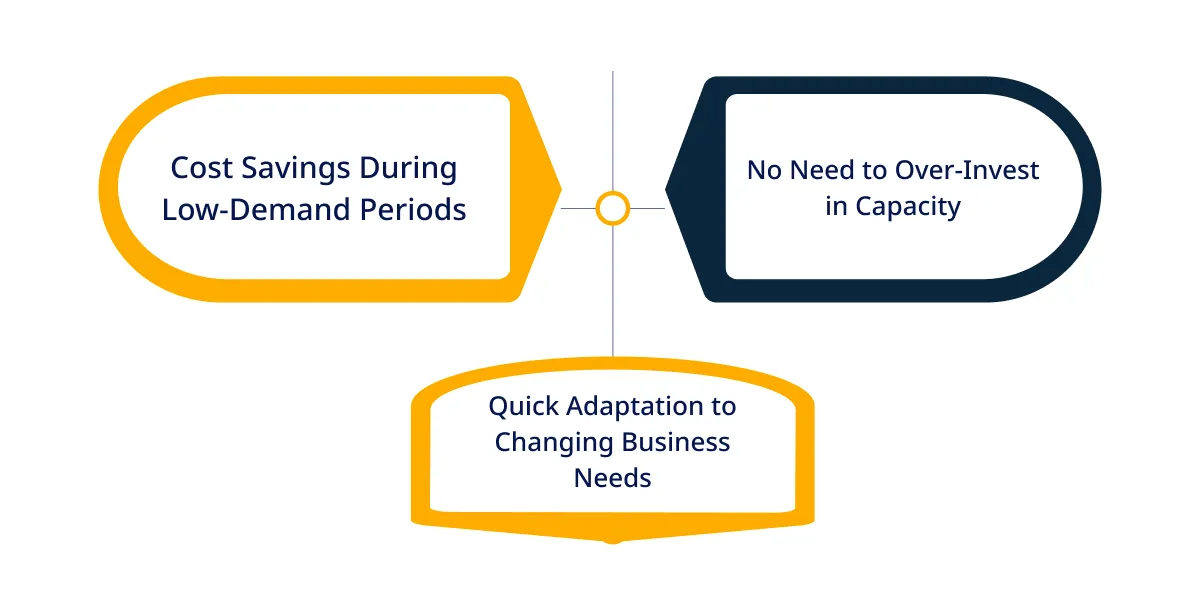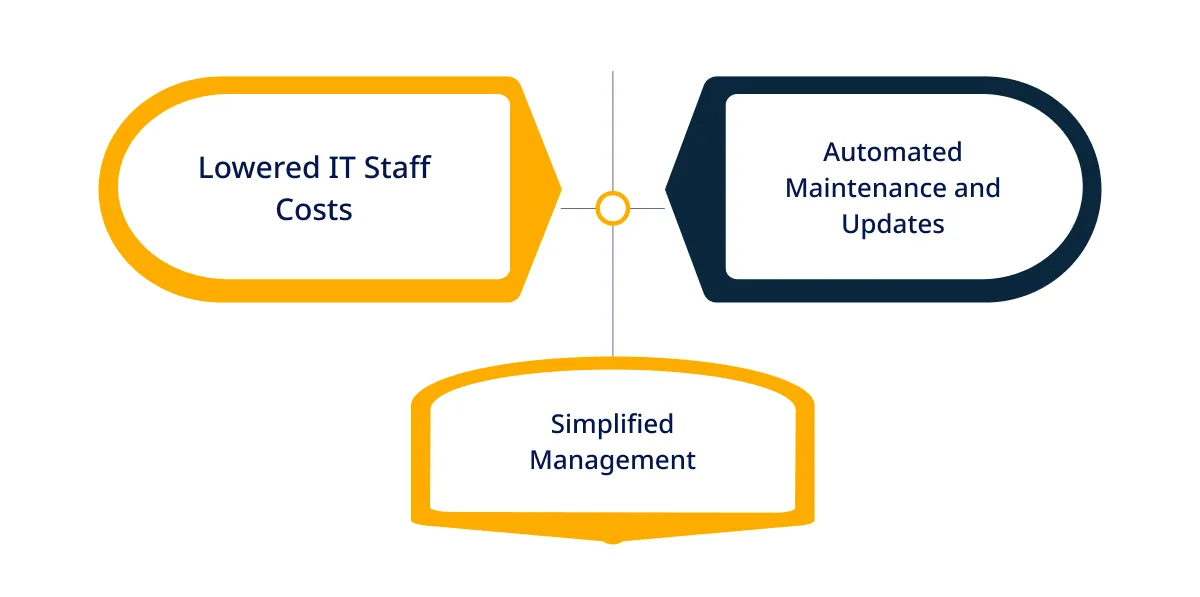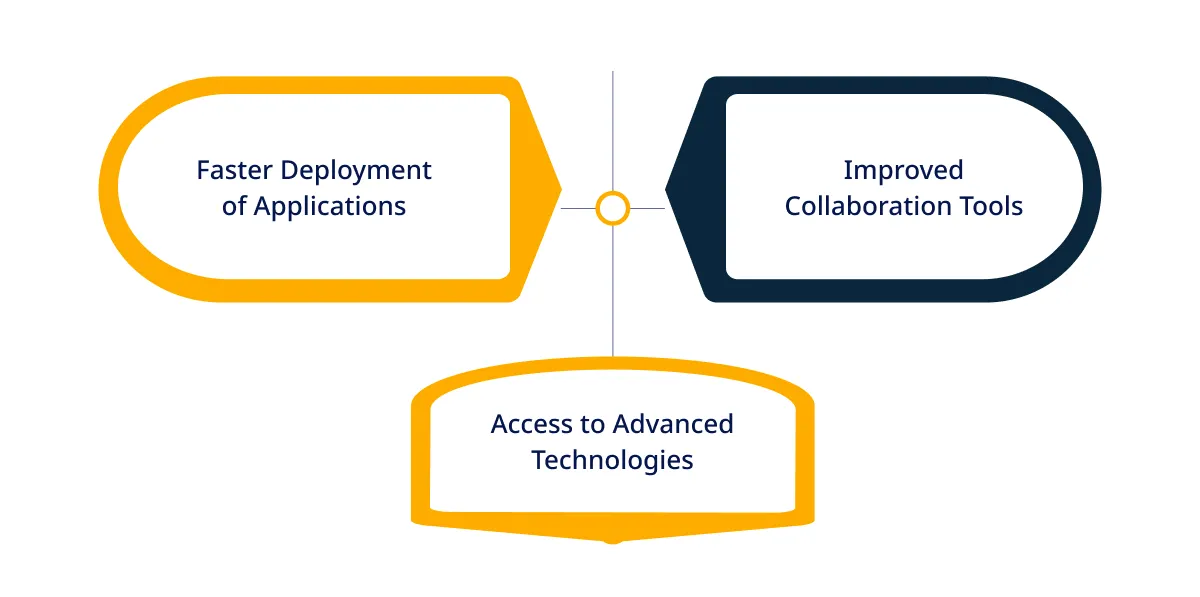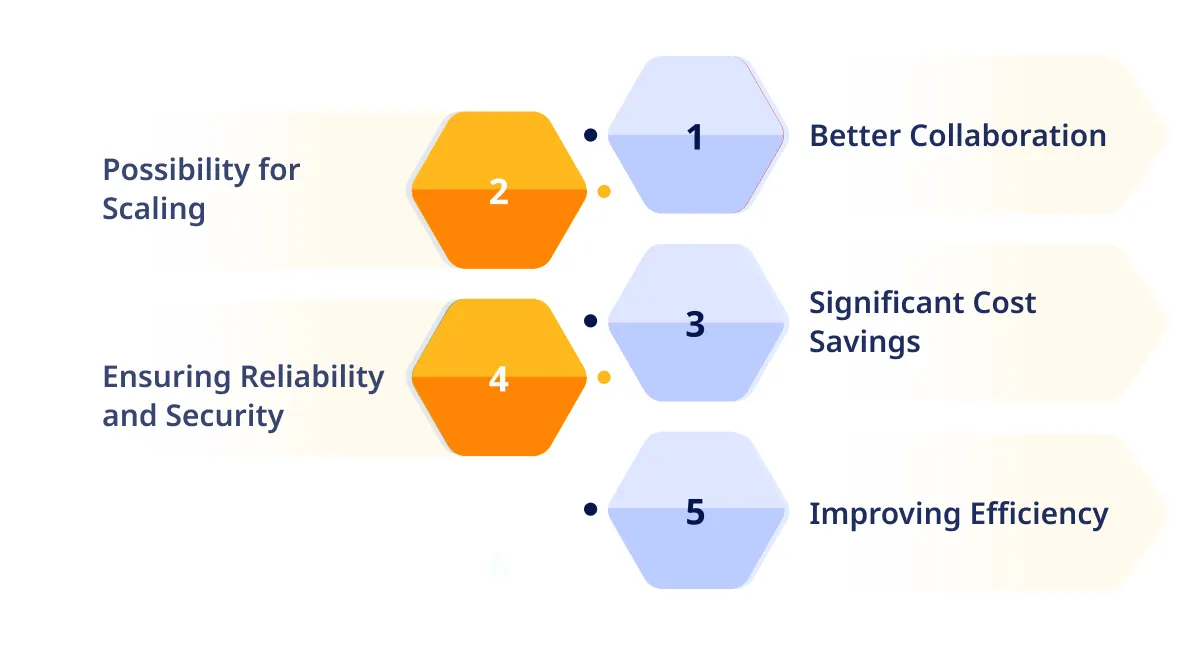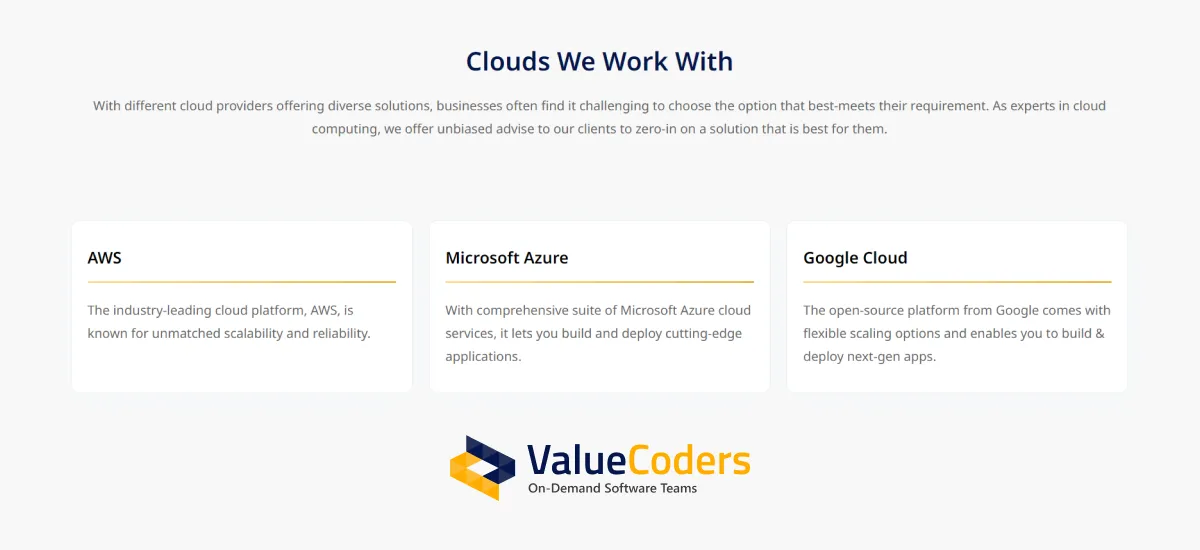A number of enterprises are making their way to cloud infrastructures in this business era. The reason behind this move is the flexibility and scalability cloud solutions provide.
According to a report by Gartner, more than 80% of the organizations are going to follow “cloud-first principle” by the year 2025. The ability to scale resources on-demand, enhance collaboration, and streamline processes make cloud technology a treasure trove of opportunities for cost savings.
However, adopting cloud solutions by organizations especially startups is not easy as the cloud costs are unpredictable. You need effective cloud strategies or ways to attain significant cost savings
Let’s read this blog post and discover how cloud technology can transform your financial strategy and drive your business towards cloud cost savings.
Concept of Cloud Computing
Cloud computing refers to the delivery of computing services that include servers, storage, databases, networking, software, analytics, and intelligence over the internet (i.e. cloud). It offers faster innovation, flexible resources, and economies of scale.
Instead of owning their own computing infrastructure/data centers, cloud financial management companies can rent access to anything from apps to storage from a cloud service provider.
Types of Cloud Computing
Cloud computing is categorized into several types based on deployment models & service models.
1. Deployment Models include:
Public Cloud
Services are delivered over the public internet and shared across organizations.
- Example: Amazon Web Services (AWS), Microsoft Azure, Google Cloud Platform.
- Benefits: Cost-effective, no maintenance, and scalability.
Private Cloud
Services are maintained on a private network, dedicated to a single organization.
- Example: VMware, IBM, OpenStack.
- Benefits: Greater control, customization, and security.
Hybrid Cloud
Combines public and private clouds, allowing data and applications to be shared between them.
- Example: Microsoft Azure Stack, Google Anthos.
- Benefits: Flexibility, optimized existing infrastructure, enhanced security.
Embrace cost-effective cloud solutions and transform your business.
2. Service Models include:
Infrastructure as a Service (IaaS)
Provides virtualized computing resources over the internet.
- Example: AWS EC2, Google Compute Engine, Microsoft Azure.
- Benefits: Full control over infrastructure, scalable resources, and pay-as-you-go cloud pricing for enterprises.
Platform as a Service (PaaS)
Hire AWS Developers whol deliver hardware and software tools over the internet, typically those needed for application development.
- Example: Google App Engine, AWS Elastic Beanstalk, Microsoft Azure App Services.
- Benefits: Simplified development, management, and deployment of applications.
Software as a Service (SaaS)
Provides software applications over the internet on a subscription basis.
- Example: Salesforce, Microsoft Office 365, Google Workspace.
- Benefits: Accessible from anywhere, reduced software management, and automatic updates.
Also read: Google Cloud VS Azure: Which Platform Is Best To Pick?
Top 5 Ways Enterprises Can Do Cloud Cost Savings
Here we have explained how enterprises do cloud cost savings using some successful ways. Have a look at these ways below:
1. Reduced Infrastructure Costs
One of the most compelling advantages of adopting cloud solutions is the significant reduction in infrastructure costs.
Traditional IT setups require substantial investment in physical hardware, servers, and data centers, which come with hefty price tags and ongoing maintenance expenses. By moving to the cloud cost savings ways, enterprises eliminate the need for these costly physical assets.
Some of the enterprise cloud benefits include:
- Lower Capital Expenditures: Instead of purchasing and maintaining expensive hardware, businesses can opt for a pay-as-you-go model, only paying for the resources they use.
- Reduced Maintenance Costs: With cloud providers handling the maintenance, upgrades, and security of the infrastructure, companies can save on the costs and manpower typically required for these tasks.
- Scalability Without Large Upfront Investments: Cloud solutions allow businesses to scale their resources up or down based on demand without the need for significant upfront investments. This flexibility ensures that companies only pay for what they need, when they need it.
Let’s take an example of a mid-sized enterprise that transitioned from a traditional data center to a cloud-based infrastructure. By moving to the cloud, it was able to decommission several aging servers, reduce IT infrastructure costs, its data center footprint, and cut its energy consumption by 30%.
This shift not only resulted in immediate cloud cost savings but also provided the company with the agility to quickly adapt to changing business needs, supporting their growth without the cloud FinOps services associated with scaling physical infrastructure.
Related Post: Understanding FinOps: A Comprehensive Guide
2. Improved Resource Utilization
Cloud solutions significantly enhance resource allocation and utilization by providing a flexible and scalable environment. Traditional IT infrastructure often requires businesses to invest in more capacity than needed to handle peak loads, leading to underutilized resources and wasted capital.
Cloud computing, however, allows businesses to dynamically scale their resources up or down based on actual demand, ensuring that they only pay for what they use.
It’s major benefits include:
- Pay-as-you-go Models: Cloud providers offer pay-as-you-go pricing, which means companies are billed only for the computing resources they consume. This model eliminates the need for large upfront investments and reduces ongoing operational costs.
- Efficient Use of Computing Resources: With cloud computing, resources are allocated based on real-time needs, ensuring optimal performance and cloud cost efficiency.
- Avoidance of Over-Provisioning: Cloud solutions prevent the over-provisioning of IT resources by enabling automatic scaling. This flexibility allows businesses to handle fluctuating workloads without the risk of overpaying for unused capacity.
For example, a retail company that experiences significant traffic spikes during holiday seasons can leverage cloud solutions to automatically scale resources up to handle increased demand during peak times and scale down during off-peak periods.
Discover how cloud solutions can reduce expenses and maximize efficiency.
3. Enhanced Flexibility and Scalability
One of the standout features of cloud solutions is their unparalleled flexibility and scalability. Unlike traditional IT infrastructure, which often requires significant time and investment to adjust capacity, cloud resources can be scaled up or down almost instantly based on demand.
This dynamic scalability allows businesses to efficiently manage their resources, ensuring they can handle peak periods without overcommitting during quieter times.
Its benefits include:
- Cost Savings During Low-Demand Periods: During periods of reduced demand, businesses can scale down their cloud resources, resulting in immediate cost savings. This ensures that money is not wasted on maintaining unused capacity.
- No Need to Over-Invest in Capacity: Businesses do not have to make large upfront investments in infrastructure to prepare for potential peak loads. Instead, they can start with a smaller capacity and scale up as needed, avoiding the financial risk of over-provisioning.
- Quick Adaptation to Changing Business Needs: As business requirements evolve, cloud solutions provide the agility to quickly adjust resources. This responsiveness is crucial for businesses looking to innovate and stay competitive in a rapidly changing market.
For example, an e-commerce enterprise that experiences variable traffic patterns, with significant spikes during major sales events and quieter periods throughout the rest of the year.
By using cloud solutions, the company can scale its server capacity up during high-traffic events to ensure a seamless shopping experience for customers and then scale down during off-peak times to save on costs.
Must Read: Top Cloud Services Companies For Enterprises
4. Streamlined IT Operations
Adopting cloud solutions can dramatically streamline IT operations, reducing both the complexity and costs associated with managing IT infrastructure.
Traditional IT environments often involve a labyrinth of hardware, software, and networks that require constant monitoring, maintenance, and updates. Cloud computing services simplify this landscape by centralizing and automating many of these tasks.
Its major benefits include:
- Lowered IT Staff Costs: By moving to the cloud, enterprises can reduce the need for a large in-house IT team dedicated to infrastructure management. Cloud providers handle much of the heavy lifting, freeing up IT staff to focus on strategic initiatives rather than routine maintenance.
- Automated Maintenance and Updates: Cloud platforms offer automated maintenance, security updates, and software patches. This automation ensures that systems are always up-to-date with minimal human intervention, reducing the risk of downtime and enhancing security.
- Simplified Management: With cloud solutions, managing IT resources becomes more straightforward. Centralized dashboards and management tools provide visibility and control over the entire infrastructure, making it easier to monitor performance, manage resources, and implement changes.
For example, a growing business was struggling with the complexities and costs of its on-premises IT infrastructure. By transitioning to a cloud-based environment, the enterprises was able to streamline its IT operations significantly.
The move allowed them to automate routine tasks, such as software updates and security patches, reducing the workload on their IT team. Additionally, the simplified management tools provided by their cloud provider enabled them to monitor and adjust their resources effortlessly.
Through cloud adoption, businesses this enterprises can achieve streamlined IT operations, allowing them to reallocate resources to more strategic areas, drive innovation, and maintain a competitive edge in the market.
Also read: Building Scalable And Secure Cloud-Based Applications
5. Increased Innovation and Productivity
Cloud solutions are pivotal in driving innovation and enhancing productivity within enterprises. By providing a robust, flexible, and scalable infrastructure, the cloud enables faster deployment of applications, seamless collaboration among teams, and access to cutting-edge technologies such as AI & ML.
This environment fosters innovation, allowing businesses to develop and iterate on new ideas quickly and efficiently.
Some of its benefits include:
- Faster Deployment of Applications: Cloud platforms allow for rapid development and deployment of applications, reducing the time-to-market for new products and cloud managed services.
- Improved Collaboration Tools: Cloud-based collaboration tools, such as shared workspaces, real-time document editing, and video conferencing, enhance team productivity by enabling efficient communication and coordination, regardless of geographic location.
- Access to Advanced Technologies: The cloud provides access to advanced technologies like AI, ML, and big data analytics, which can be leveraged to drive innovation and gain insights. These technologies enable businesses to develop smarter solutions and make data-driven decisions.
For example, a global software development company adopted cloud solutions to enhance its innovation and productivity. By moving its development and testing environments to the cloud, the company was able to deploy new applications much faster than before.
Additionally, the access to AI services provided by the cloud allowed the company to integrate advanced features into their software products, enhancing their value proposition.
As a result, the company not only reduced costs but also significantly accelerated its innovation cycle, staying ahead of competitors in a rapidly evolving market.
Learn the proven strategies for saving money with cloud technology.
Advantages of Using A Cloud Service Provider
Adopting cloud solutions through a reputable cloud service provider offers numerous advantages that can transform the way enterprises operate. Here are some of the key benefits:
1. Better Collaboration
Cloud services facilitate seamless collaboration by providing centralized access to data and applications from any location with an internet connection.
As per fierceinc, 86% of employees cite lack of effective collaboration and communication as the main causes of workplace failures.
Teams work together in real-time, share documents, and communicate effectively, enhancing productivity and speeding up decision-making processes. This is especially valuable for enterprises with remote or distributed workforces.
2. Possibility for Scaling
One of the most significant benefits of cloud services is the ability to scale resources up or down based on demand. Whether it is about handling a sudden surge in traffic or expanding operations, cloud providers offer flexible solutions that can be adjusted instantly.
This scalability ensures that enterprises only pay for the resources they use, avoiding the need for large upfront investments in hardware and infrastructure.
Must Read: Top Cloud Computing Trends
3. Significant Cost Savings
Cloud services eliminate the need for expensive physical infrastructure and reduce maintenance costs. Enterprises can switch to a pay-as-you-go model, lowering capital expenditures and freeing up funds for other strategic initiatives.
Additionally, cloud providers often offer cost optimization tools and strategies to help businesses manage and reduce their overall cloud spending.
4. Ensuring Reliability and Security
Reputable cloud service providers invest heavily in security and reliability, offering advanced features such as data encryption, regular backups, and disaster recovery options.
This ensures that enterprise data is protected against cyber threats and can be quickly restored in case of an outage or other disruptions.
5. Improving Efficiency
Cloud solutions streamline IT operations by automating routine tasks, such as software updates, security patches, and system maintenance. This automation reduces the workload on IT staff, allowing them to focus on more strategic initiatives.
Additionally, cloud providers offer advanced management tools and analytics that provide insights into resource usage and performance, helping businesses optimize cloud costs, their operations and improve efficiency.
Implement cloud solutions to drive savings and operational excellence.
How Can You Maximize Cloud Savings With ValueCoders?
Maximizing cloud savings is an ultimate goal for enterprises. Using cloud financial benefits, they can achieve their business goals easily.
ValueCoders, a leading provider of cloud solutions, offers a range of cloud migration services and strategies designed to help businesses optimize their cloud expenditure. Here’s how partnering with ValueCoders can lead to substantial cloud cost savings:
- We take a tailored approach to cloud adoption and ensure that each solution is designed to meet the specific needs of your enterprise. By aligning cloud resources with your business objectives, we help you avoid over-provisioning and underutilization.
- With extensive experience in cloud cost savings, we provide valuable insights and strategies to help you control and reduce your cloud expenses. This proactive approach ensures that you are getting the most value out of your cloud investment.
- Our experts employ advanced tools & techniques to monitor and manage your cloud resources efficiently. By continuously analyzing usage patterns and performance metrics, they can make informed decisions about resource allocation, scaling, and optimization.
- Out cloud experts utilize automation tools to streamline routine tasks, such as scaling, backup, and recovery, which reduces manual intervention and associated costs. Additionally, our optimization services help you maintain peak performance.
- We implement robust security measures and ensure that your cloud infrastructure complies with industry standards. This proactive approach not only safeguards your cloud business savings but also helps you avoid potential financial setbacks.
- We offer ongoing support & continuous improvement to ensure big cloud migration savings over time. Our experts are always available to assist with any challenges and to provide recommendations for further optimization.
Conclusion
So far we have seen that deploying cloud computing solutions is a strategic move towards sustainable cloud cost savings, efficiency and operational excellence.
By using the above discussed five proven strategies, enterprises can significantly cut down on expenses, drive innovation, and stay agile in a competitive marketplace.
As the cloud continues to evolve, those who harness its full potential will not only save money but also position themselves for long-term success and resilience. The future of enterprise efficiency is here, and it is surely in the cloud.
Hire cloud experts from ValueCoders (one of the leading Cloud services companies in India) who have successfully delivered 4200+ projects to global clients.


